|
You remember the old Breda trolley bus. Dinosaur is an apt descriptor not just because they were old, but because they were gigantic. Majestic. Capable, unpredictable, steeped with the echoes and scuffed scratches of history, repositories of a thousand stories drifting up the boulevard.
A UW grad student was riding a loop on tonight's bus because he was writing an ethnography of the 7/49. Because if you were going to do an ethnography of a single route, well, what other route is there, besides perhaps the E Line/358? This is the crowning flagship of Seattle, diverse and multifaceted as no other line. He'd ridden other drivers' 7's too, and looked around on mine, marvelling. First of all, he told me, yours is louder. People are talking to each other. And they're in good moods. And, they're sitting next to each other. Most of this trip was kids, late-night teenagers, and they were mostly bunched in the back sitting together, in total violation of the regular rule of sitting by yourself throughout the bus until every last empty seat pair is taken. Around the point of passing Martin Luther King, Jr. Way, we realized some of the girls were smoking. I got on the mic again, this time not to call a stop out but to tell them: "okay this is for my buddies in the back. We gotta put that light out. I'm just askin' you please, as a special favor, outta respect we can't be smokin' on the bus tonight. Thank you for working with me. I love you all..." "We love you too!" They laughed and complied, and we yelled a couple more thank you's and love you's. "Wow," said my friend. "People saying I love you? As a way to get them to stop smoking?? Only you could pull that one off..." I chuckled. I remembered another driver telling me the best way to do this job is be yourself, and maximize whatever that is. I don't look big and strong. I look friendly and harmless. Yes, I work out, but no matter how much I always still look twelve. Such is my lot. So I take those things and run with them. What I can do is be the young-looking nice guy who's their friend. There are other ways that are just as viable, but this is what I can offer. Tonight, it works. Afterwards, he and I go back to chatting. I mention how I was recently in Italy, where smoking is more prevalent, but where they also have longer lifespans than us Americans. It turns out he knew that as well, and more. I listened, fascinated. I remember the content more than his precise words, so I'm paraphrasing here, which I know is massively uncharacteristic for me (apologies, Adam!). This post is a little different from the rest, but the material, I believe, is critical enough to warrant it: "It's an interesting question. Why do some societies, some countries, have longer lifespans than others? What activities do longer-living societies perform that have a causal or at least a correlational effect on long-term health? One way is to look at societies within a country. Which culture group in the US do you think lives the longest?" I said the first thing I thought of: "rich white people with easy access to good food and medical care." "You would think so. I thought so. But it's actually the Latino community. And it isn't because their food is healthier. It isn't. It's not because they have great access to medical facilities. We know that's not true in this country. And it's not because where they live is generally safer or has less crime. Or like the jobs they have to work are easier on the body. These are very often, generally speaking, working class lives, often in less than ideal circumstances, that are not exactly what we would call comfortable. So. Why of all Americans, does the Latino community live the longest?" I'm loving this. People nearby were starting to pay attention. A lot. "Because they have the strongest sense of community. Inside the Latino community, within the Latino community, there's more equality than any other American community. The greater the equality is within a country's population, the longer the average lifespan. And the higher the inequality, the shorter the lifespan. And we all know which country has one of the highest levels of, quite possibly right now, the most inequality of anywhere." "The United States." "Exactly. It doesn't matter if you're a rich white guy who shops at Whole Foods and has great benefits. I thought that too, that the people at the top of a social hierarchy probably live the longest. But when you're the rich white guy and you walk outside and see a guy on the street with no legs, you're reminded, constantly in our society, you're reminded that you could become like that really pretty easily. You live with the thought that there is no safety net. What if you get fired from your job? Or require an expensive medical procedure? Nobody here is exempt from the fact that you could plunge into a very different and unsatisfying life state very fast. "The people who are already there suffer because of what they're going through, and that affects their quality of life in obvious ways we can understand. But everyone else also suffers because they know they're living at the edge of a cliff, all the time, and there are reminders of it everywhere. It's not really a physical thing, or I should say not only a physical thing but a psychological thing. A black woman in New York City is ten times more likely to die giving birth than a white woman. No genetic basis for it. It's the psychological toll of being a black woman in New York City. It all adds up, the mental struggle, the psychological weight of living in an imbalanced society and feeling that inequality all the time. "Whereas, in the Latino community, there's a strong sense of family. People take care of each other. If you lose your job, you know somebody will take you in and help you. Have you noticed how most homeless people, whether black or white, are usually American? How often do you see homeless or disabled Latino men in the street?" I had to admit it. "Rarely. Basically never." "Community. That community has a safety net. Surrogate family figures, friends, cousins, strangers. People who look out for you. You sleep differently at night when you know you have a safety net. And the thing is, this research has had a hard time becoming popular because you can't monetize it. It's not one of these easy solutions, like, you need to eat more tomatoes." "Right." "Or, all you have to do is buy olive oil." "Totally. Like how the environmental movement didn't take off until they figured out how to turn it into an excuse for people to buy stuff." "Exactly. This is different. It's intangible. And it's way, way more valuable. Which is why what you're doing out here on these buses is so cool." "Hey. One person at a time, right?" "One person at a time!" Community. Equality. Creating more of it might just save our lives. Literally. --- Further reading: The Spirit Level: Why Greater Equality Makes Societies Stronger, by Richard Wilkinson & Kate Pickett. Book preview here. Don't have time for a book? Maybe a Malcolm Gladwell book will do! The opening chapter to his Outliers explores the same material using different data.
2 Comments
This is second in a three-part series. Click here for part one.
There have been a few of us, out of UW Art School, who haven't been able stop creating on a large scale. You've heard of Laura Hamje, the painter, whose roadway landscapes (most recently her every-piece-sold show of viaduct windshield views) somehow, through their large scale and exterior textures, evoke the interior, unspoken landscape of the soul's eye, the child who questions being and time; or Serrah Russell, whose collage work beguiles in its delicate, evocative simplicity, calling to mind the formative definition of a thought: two discrete units linked, combining to form a third thing– an idea. It is not a desire, this movement towards creating. It certainly isn't for the money (as I take another bite of canned beans and rice), not really career either, speaking for myself at least, but the throbbing lifeblood urgency of the need. It is a need, this thing, not a desire, nor hobby or interest. It is a goal where the goal is having a goal, where the final act is to be in the middle of a brushstroke, the light and potent space before a whisper; where you can translate your thoughts– your thoughts!– onto paper, wood, celluloid. To step, through being, outside of time. It is a malady of sorts, this need is, that I hope never to cure. We were teenagers fifteen years ago, these giants and I. Laura sitting over there, we freshmen in Studio Drawing, dabbing sumi ink on newsprint, carefully studying the light on vases and apples. Hauling our portfolios back to campus to finish our assignments late at night. Serrah at critique in Photo Theory, where the silence before a sentence carried as much meaning as the words themselves. I would stay overnight in the color darkroom alone, printing back and forth until the clock didn't exist. We didn't know the shape of the future. I stood bewildered at one of Serrah's shows some years later. The place was so packed it was difficult to move. What must that feel like, I wondered. To make the summit. I'll never know, I thought, and that's okay. But some years later the same thing would happen at my shows, where people told me they couldn't even make it past the door, but for the enthusiastic bodies. I would complete this film, then that one. There were the press appearances. The front page. The milestone of the twentieth show, then the thirtieth. Images selling at these prices. However.. I don't know why this author reading was the very first event which felt like I had touched the elusive summit. None of the others carried a sense of relief that sufficiently outweighed their various challenges. I distract myself during these things with trying to do a good job. I know how fickle this type of success is, how much less it means than... Well, you know. What we already have, and can so easily lose. But I offer the words above in order to contextualize the next post. I write in an effort to suggest the whirl of thoughts I felt while sitting up there, on stage. I write this for the people who've asked me what it felt like, and I write it for myself because I have a habit of shutting out praise, deflecting compliments, resisting the actual in moments of extreme goodness directed at me. I do this to protect myself from being dependent on it, believing it in unhealthy ways (wouldn't you do the same?), but I do it too much. I've gotten so good at shutting out personal appreciation gifted to me. How do you think I stay humble, with all these accolades? Sane? But: the price is real. I cannot feel the joy I should be feeling at events like this. It always feels like it's happening to someone else. Tonight was the first time I made a real effort to breathe. --- Click here for Part three! Above photo by Brittany Hammer. Now that was something.
How can I thank you? I'm told there were 150 people there. That extra rows of chairs had to be brought in, that people stood, gladly, for an evening-length event measured not in minutes but hours... They travelled in from outside the city. They jotted down remarks of mine, as though what I was saying had some kind of value. Do you know how much that means to me? There are different types of truths. When people ask how something like this book came into existence, they don't really want to hear the nuts-and-bolts journey. Who emailed who, what day the idea began. No, it's the emotional journey we can best relate to; the trajectories of thought that led you toward a decision, where you were standing when the idea hit, how warm it was. The childhood that made you think this or that way. That's what I want to share here. I don't write a lot about myself on this blog. It only seems like I do. I tend to limit the discussion on myself to the literary equivalent of breadcrumbs, because I'm more interested in other people; but enough folks have asked about the book, and I owe you some details. Here goes. -- I was a reader long before I developed an interest in film, and of course long before I began driving buses. My father worked (and still does) at one of the country's only surviving book menderies. The book as something valuable, bodied, real. Literature. Taking care of things, of art: These were concepts before I knew what the word concept even meant. As an adolescent I worked as a page at King County Library System for six years (oddly, an ideal prep for bus driving– but we'll get to that in another post!). Again, books being the thing– and not just as an explanatory refuge of knowledge, but as the tactile living object. Things so worthwhile there was a facility dedicated entirely to preserving them, healing them, sending them back out into the world for me to shelve. Those were the days of the real. The internet existed, but not in a way you actually cared about; it wasn't useful yet, certainly no social media, not interesting enough to be a distraction or diversion. Checking movietimes meant poring over the newspaper, or calling the theatre and listening to that interminable voice message. When you wrote a paper for school, you went to the library and sleuthed for your information, pulling volumes off shelves and cross-referencing and indexing, books on books open to different chapters with your notes alongside. You remember. Cracking open an ancient encyclopedia and noting the smell of the inseam, the gentle stay of pages opened for the first time in who knows how many years. Life, a thing we experienced not just with sight, but all the senses! It was into this environment my formative years were born. It was these textures, these places and memories that led me to place great value on books, and anything else that is tactile. Books, vinyl, film. Hipsters gravitate toward these same things because they do not have memories of them but secretly wish they did; I'm drawn because I do remember. Spoken conversation. The physicality of things, of engagement, greetings at the cash register, phones with a cord going to the wall, an envelope of new photos from the drugstore. Do you remember winding a cassette tape back up with your pinkie finger? It isn't physical objects I'm trying to eulogize, but tactile engagement. I'm not saying this is better. I'm saying we dream in the landscapes built by our childhood. It's because of this background that I place much greater value on accomplishments that are tangible. The blog is a major accomplishment, I'm told, but it isn't tactile to me. I can't touch it. The book, on the other hand... There are dreams you work toward hesitantly, making an effort not to picture the shape of their outcome, for fear of disappointing yourself. But you keep working away at them, if only to stave off the feeling of stagnation you'd have otherwise. I've wanted the blog to be a book, wished it could one day be a real live tome you could hold in your hands and touch, turn the pages, since, well, the beginning. But I didn't dare imagine. I'd stand in the halls of this same bookstore, Elliott Bay, one of the great independent northwest bookstores, newly opened on Capitol Hill at the time, pulling off titles that vaguely compared to what I was trying to do. Essay collections, non-fiction short stories, books emphasizing optimism or urbanism, nothing quite what I had in mind but similar– pulling them down to see who the agent was in the acknowledgments, reaching out to them with a query of my own (determining the agent and editor of a book is something you can still, largely, only do in person). I went through the motions, querying agents, writing letters, writing drafts, assembling marketing plans and researching readership demographics. One agent in New York finally replied, asking to see my manuscript. I didn't have one, because non-fiction book proposals are normally presented before the book is written. What did I do? I put together a 300-page manuscript of stories in eighteen hours and sent it to him. Because I wanted this. I put the hours in. So many hours, agents, fevered late nights. But I never allowed myself to daydream; just work on what you can right now. And enjoy it. It never occurred to me to think about what my book would look like on those same Elliott Bay shelves, or what an author event might feel like. Don't set yourself up for that sort of pain, I thought, that disappointment! One day I'll write further about the magic of how this came together. It wasn't through backbreaking appeals to New York agents, as above, not flowing against the tide of life but with it; working with the good people right here, friends and artists who so graciously reached out, whose interest, efforts and enthusiasm I feel enormously humbled by. Will I ever know exactly how it came about? For now, the point is I never actually thought about this day happening, let alone what such an event would look like. I've just been working at it, keeping my head down for a long time. Forgive me this post and the two which will follow. This is me finally looking up, taking a look around. --- That's the preamble. What did this thing feel like? Click here for the next post~ Above photo by Brittany Hammer. Enough about my book! I've spent enough energy telling you about my upcoming author reading tomorrow night (ahem, link here!!)...
Here are a few words of mine in Seattle Review of Books. They do a weekly series called "Whatcha Readin'?," in which they ask various luminaries what they've been, erm, reading. Here are my answers. Hope to see you at a certain bookstore very soon! I can't resist sharing this, an update from Elliott Bay Books on how my book is selling there:
""The exciting news is that Nathan's book is number 5 on our bestseller list– not far behind Michelle Obama!" What? How did that happen?? It isn't hubris that compels me to share this, trust me. It's gratitude. The real arbiter of what that sentence is celebrating is you all, not me. That there is support and enthusiasm out there for uncomplicated, uncontroversial goodness, celebrations of the little kindnesses... That's what's really inspiring here, and worth noting. Publishers who passed up on this book, take note: there is a market for being nice. Elliott Bay is hosting me for an author reading and Q&A this Tuesday at 7pm. You're invited. Details and directions here. Above photo by Victoria Holt Photography. That's from my October 2018 solo show, also the event where this book was launched: details on the show here, and thoughts of my own on it here. Tuesday, January 15, 7pm. Elliott Bay Bookstore. Free. Details and directions here.
You've been to these sorts of things before. You go see someone whose work you like, but they're jet-lagged and tired, and you can sniff the obligation suffusing the fringes, the homework assignment of it all. How they're maybe wishing they didn't have to go through with it: the part of you that enjoys complaining about a luxury. The thing is, I'm just not that famous. That's part of it. But moreso, I have a tendency to default to wonder. Joy. What does this really mean? Being able to get excited necessarily means being able to admit you don't know everything. Wonder contains curiosity, and a know-it-all cannot be curious, cannot be excited. Do I want that? No. I want to feel the joy that comes in the gratitude of ordinary things. This is what I've learned from the people closest to me. It's how they operate. "I will find joy in all I see," a character says in Terrence Malick's The New World. It's a decision, and it pays dividends. "I still like hotels but I think that'll change," wrote Lorde, just before hitting the cusp of superstardom. I like to think I'll never be of the position nor the inclination to dislike hotels, openings, publicity events and the like, or that if I do, I'll do something about it. I've listened to a lot of people throughout life tell me "just you wait," "you'll change your tune when this happens," "when you get to be my age..." I appreciate their concern, but in nearly every case time has revealed they just didn't know me well enough. All of which is to say: I'm really excited to be doing this author event for you. I love this kind of stuff. Not from pride, no, nor thirst for attention– I just really enjoy sharing. I love the pleasant anachronism of sharing this lowbrow, odd-angled and rough-hewn landscape of my bus driving friends, my world, with the cultured, erudite highbrow milieu of art, film and literature– also my world. Aren't they both great? I love finding ways of sucking the pretension out of art events. I enjoy the thrill of public speaking because it's an opportunity to share enthusiasms, and we know how contagious those are. There are more wonderful author events than otherwise, but we've all been to the type of thing you know I'm referring to: where you can't tell if the guy took sleeping pills, and the only questions that get asked are 'what inspires you' and 'do you ever get writer's block.' This won't be that. I'm having too much fun here. I mentioned a surprise in an earlier post. This is it. Maybe you saw it coming. I didn't. I naively thought nobody would want the book!! Forgive my spareness on the blog this week and next, as I prepare for this. I like to get things right– whether it's the book, these blog posts, the photos, or the film I'm still in post-production on. I want to make them worth your while. One day I'll know how to relax. Right now all I really know how to do is bend over backwards making the best possible book, art, bus ride, experience... for others. People I care about. You. I hope to see you there. |
Nathan
Archives
July 2024
Categories |
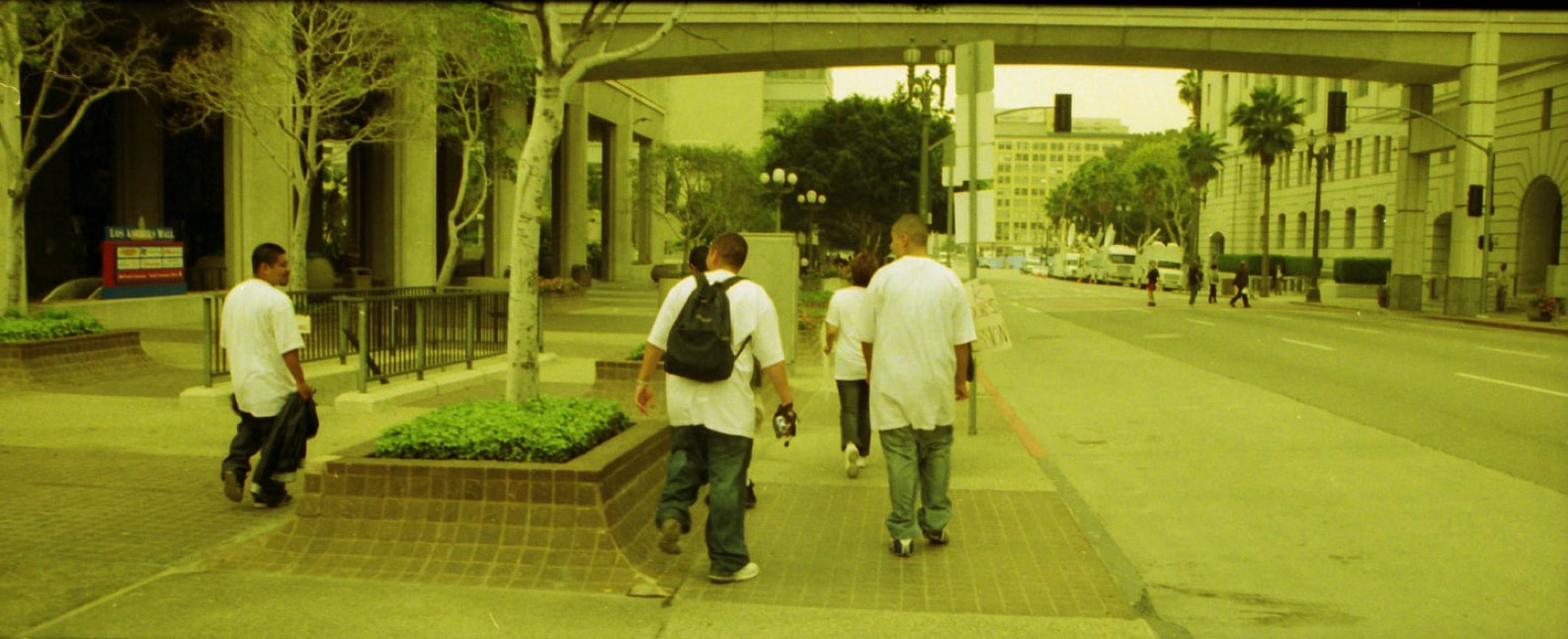
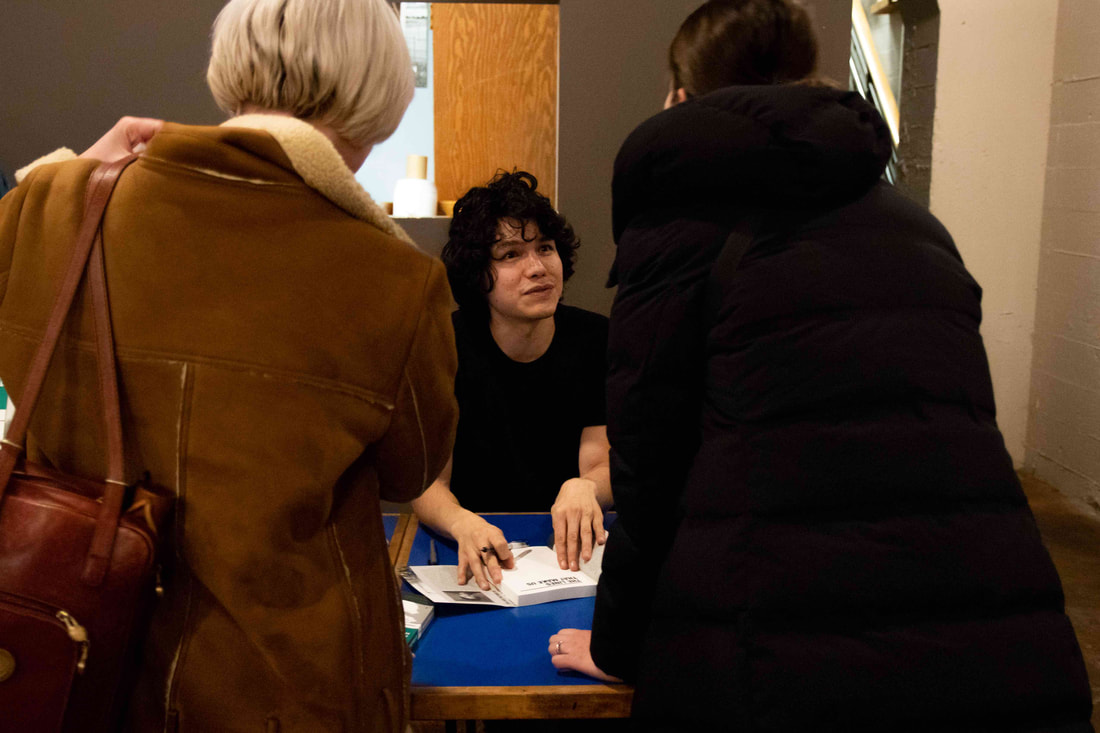
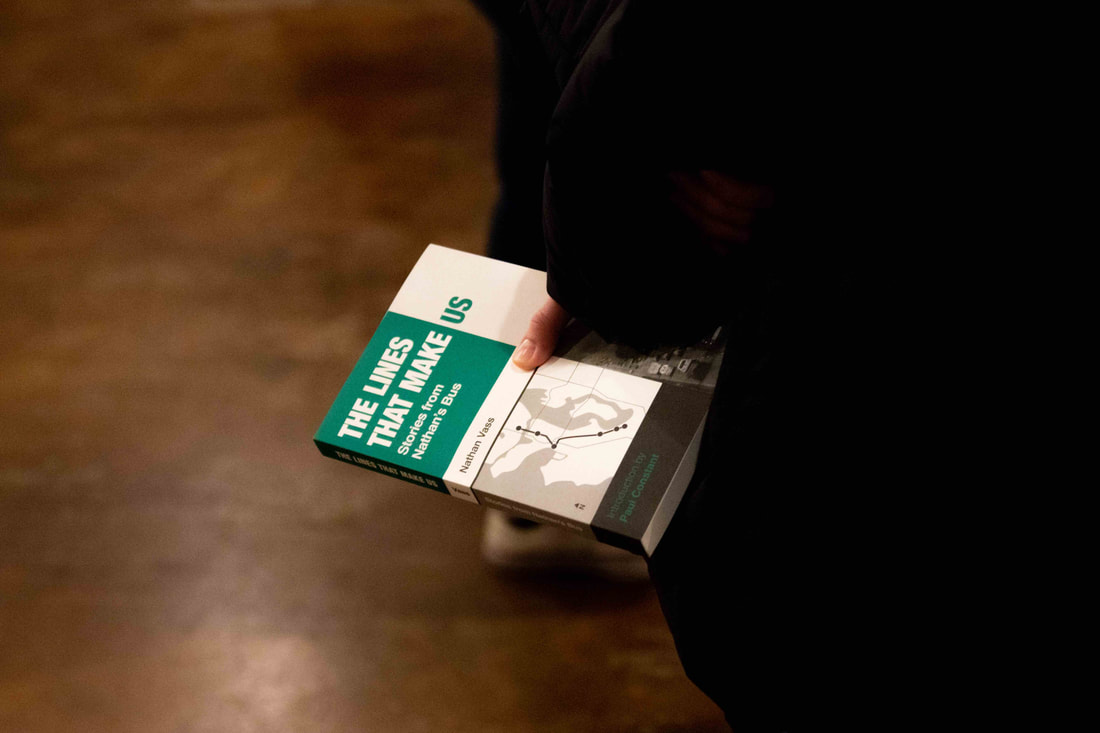
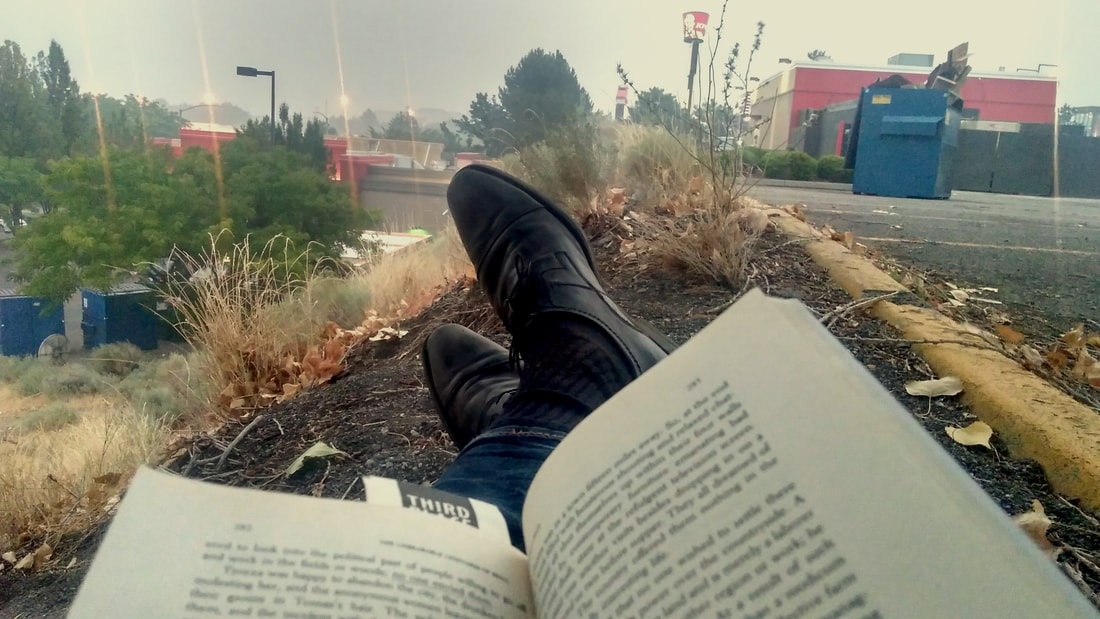
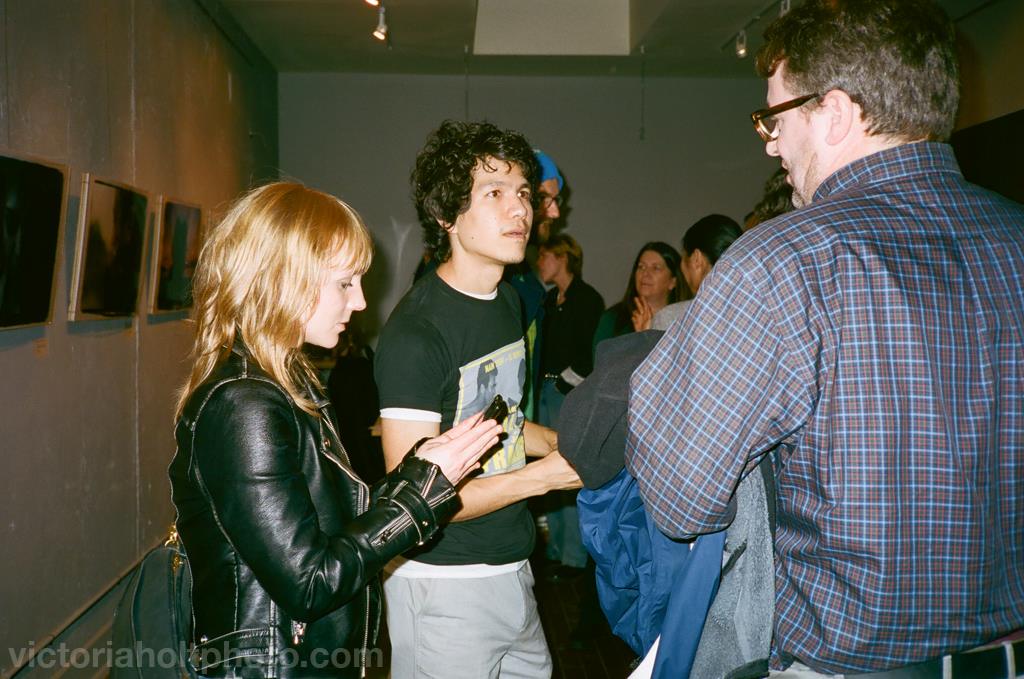
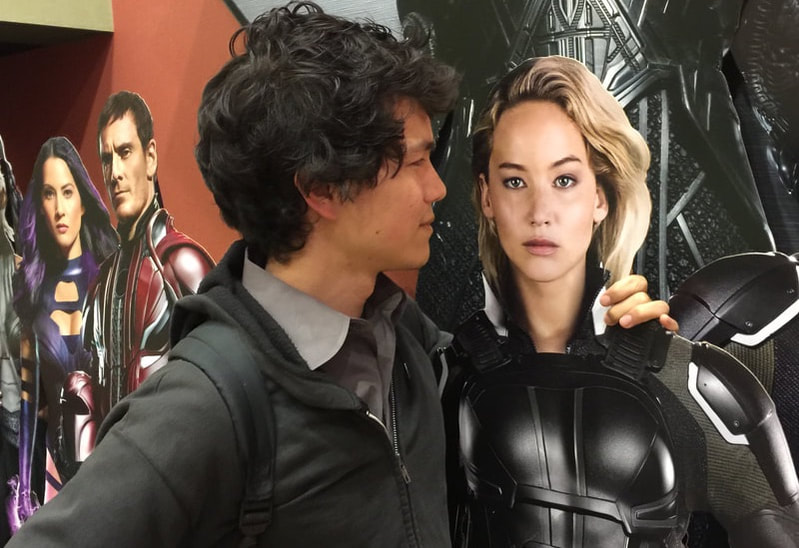
 RSS Feed
RSS Feed
